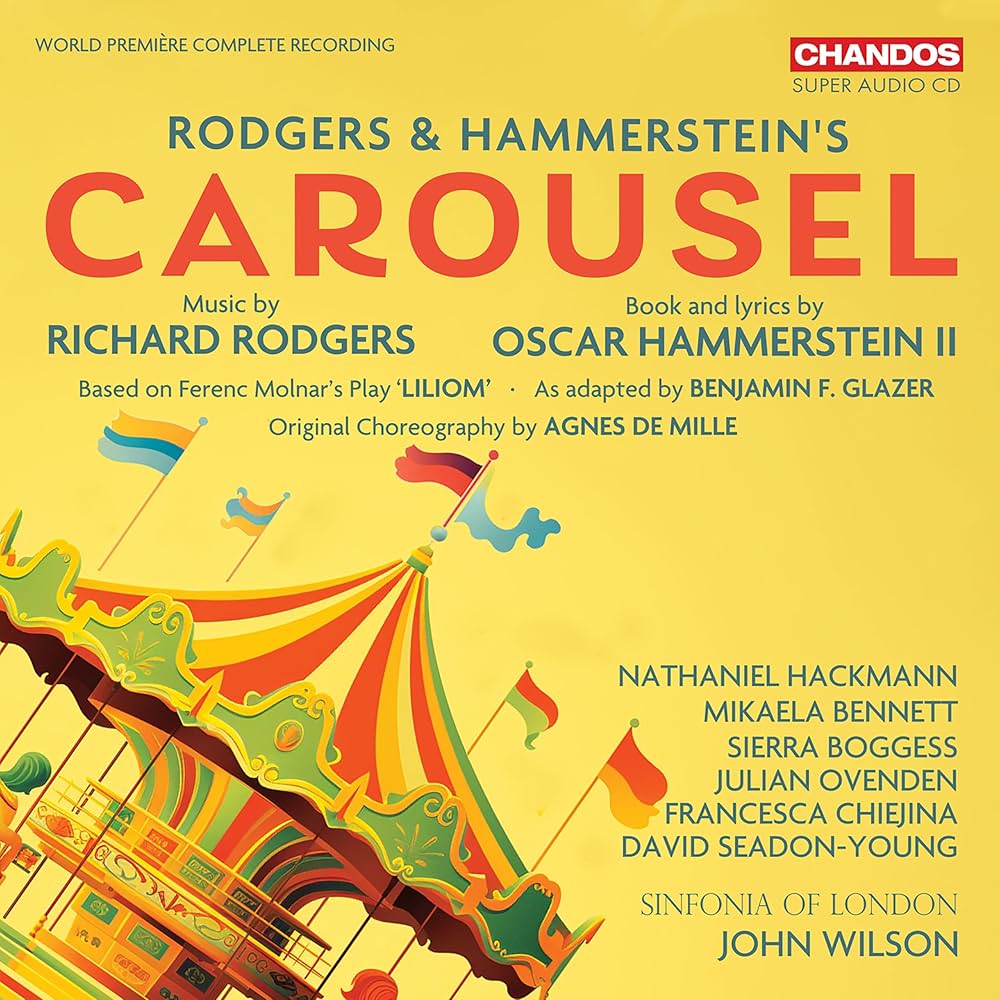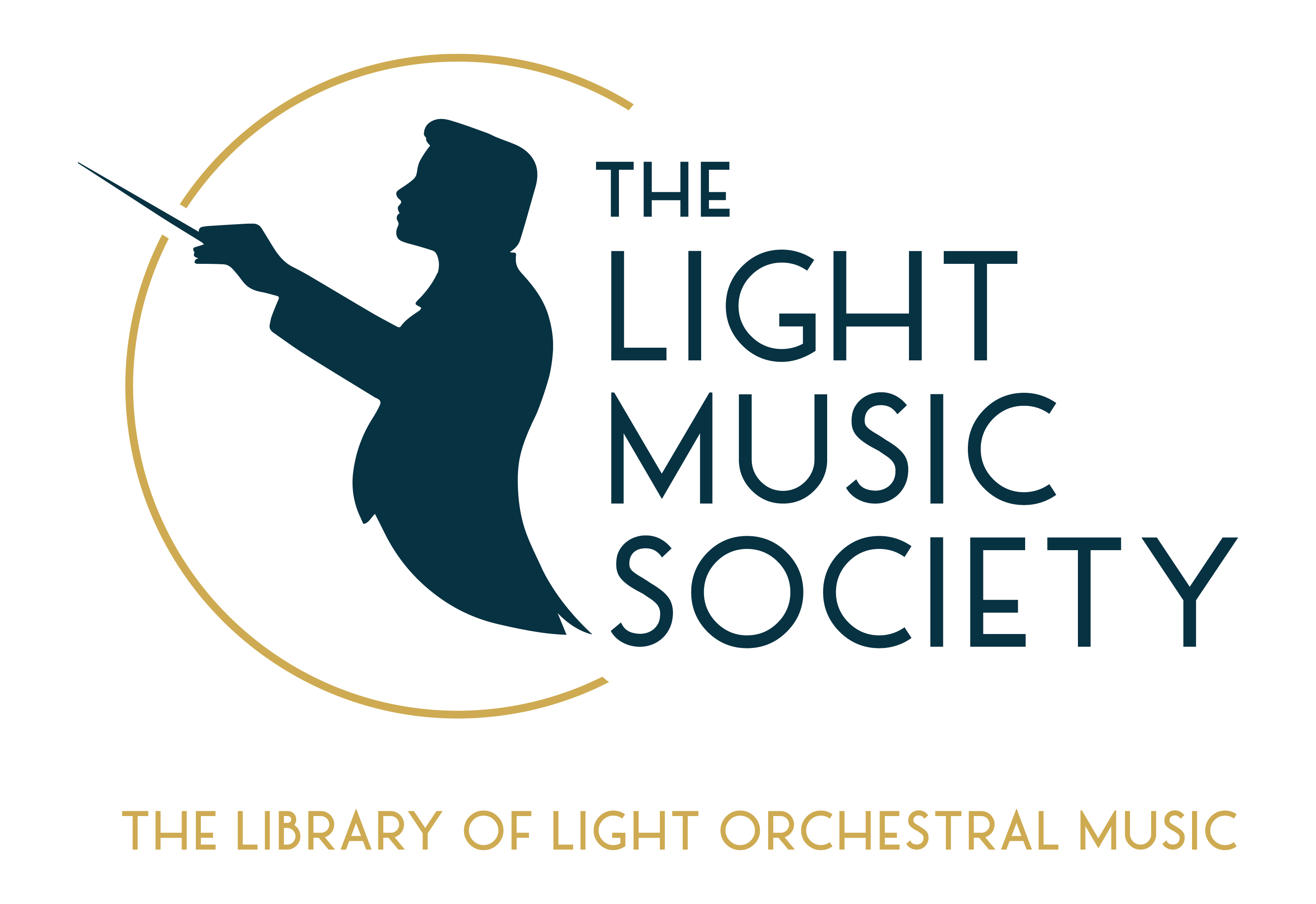Nathaniel Hackmann, Mikaela Bennett, Sierra Boggess, Julian Ovenden, Francesca Chiejina
Sinfonia of London
Conductor: John Wilson
ChandosCHSA 5342
Following hot on the heels of his authoritative rendering of the entire original score of Rodgers and Hammerstein’s Oklahoma!, this recording seems like a natural follow-up for John Wilson and the Sinfonia of London. Carousel arguably showcases the songwriting team at their best, the score boasting superb scene setting, humour and deep sadness (I think wrongly described in some corners as sentimentality). Wilson’s aim in this recording has been to record (and restore) every note of music for the original show in its original orchestration. It is a recording in which the score quite emphatically takes centre stage.
The opening Carousel Waltz is just about the finest overture to a musical ever to have been penned. As anyone familiar with the show will know, this is far from a conventional overture comprising multiple themes of the show to come, but rather a wordless opening musical number replete with choreographic possibilities (Rodgers actually orchestrated the waltz himself as well as When I Marry Mister Snow, before Don Walker came on board to produce the rest of the orchestrations). There's no hanging about whatsoever in Wilson’s rendering of this opening: no lilting gentle carousel waltz that you get in some recordings; this is a musical white-knuckle ride, with just about the most rapid tempi I’ve ever heard for the number, hurling the listener headlong into the bustling fairground setting!
In many ways, it is the Sinfonia of London that stars in this recording and I say this in no way to undermine the sterling efforts of any of the cast, it is simply that with every orchestral sting, scene change and cue recorded, the orchestra really are given a chance to make their presence felt… And boy do they manage it! The Sinfonia of London under John Wilson have a gift for flair and colour, meaning that even fragments like the opening of scene 3 are full of character. More extended sections such as the Act 1 Hornpipe and the Act 2 Ballet are simply outstanding, truly making the case for Carousel as a showcase for orchestral writing as well as vocal. Where it became slightly problematic for me was in the Act 2 Porch Scene, in which all of the show’s conflicting emotions and moral questions reach their zenith after Billy, now a spirit, slaps his daughter across the face in a grim reminder of the domestic violence that dominated his life as well as a heartbreaking indicator of the character’s failure to repair the damage he has done. Here, the orchestra crashes in at considerable volume with heavy vibrato in the solo trumpet, coming close to drowning out the dialogue completely. The upper brass frequently deploy more vibrato than suits my taste personally and here I find it far too heavy handed, but other opinions are available and I’m sure it will be more affecting for some listeners.
In the role of Billy, Nathaniel Hackmann, who played Curly in Oklahoma!, makes his return to Rodgers and Hammerstein repertoire. Somehow I find the role of Curly perhaps suited him a little better, but his range is more than up to this role. Naturally, his time to shine is the Soliloquy (My Boy Bill), which he performs with clear relish. The tricky thing on a recording like this is finding the balance between acting and singing and here we have a very much sung performance with clear attention to the melodic line, but Hackmann manages the “mood swings” with great dexterity. Occasionally, I did find his vibrato resulted in a slightly unfocussed sound here, but this is not the case elsewhere and his floated “How I loved you” at the end of the Porch Scene is delivered with breathtaking sensitivity.

Mikaela Bennett brings a somewhat operatic expressivity to her role as Julie, and it is none the worse for it. Her performance demonstrates the clear through line from opera, to light opera, to musical theatre, seemingly combining all three styles in a cleverly nuanced and touching performance. Sierra Boggess, who sang Laurie in the Oklahoma! recording, makes a wonderfully quirky Carrie on this recording and her delivery of Mister Snow perfectly mixes her good humour and sincere affection for her ‘beau’. Julian Ovenden plays the aforementioned Mister Snow and he is particularly affecting in When The Children Are Asleep, in which both considerable vocal range and sensitivity are on display. Meanwhile Francesca Chiejina plays Julie’s cousin Nettie and a more rousing June is Bustin’ Out All Over and a more heartfelt You’ll Never Walk Alone will be hard to find, married to a mellifluous tone perfect for the role.
The overall result of every single note of the score being recorded with only partial excerpts from the book does lead to a rather disjointed listening experience and I do question its purpose, as it can’t exactly be described as serving the drama. It does, however, add something to the understanding of the score for a musician or historian of musical theatre and as such will hopefully provide even the casual listener with a form that allows them to recognise that there is nothing slight about the achievements of Rodgers and Hammerstein in transforming the shape of musical theatre from a light entertainment medium to a platform with which big questions can be asked.
DA

Leave a Comment
I hope you enjoyed this post. If you would like to, please leave a comment below.